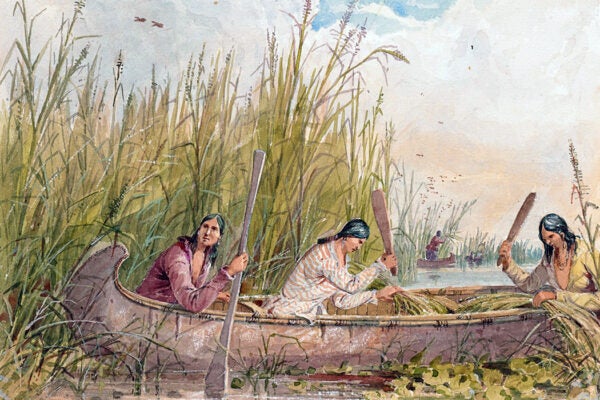When it comes to protecting ecosystems, land, and watersheds, the most effective advocates are often local people who live on and with the land. As anthropologists Diana J. Fox and Jillian M. Smith write, one striking example is the work of Akilah Jaramogi. She is a Trinidadian Rasta woman at the center of the three-decades-long transformation of an urban forest along the Fondes Amandes river, just outside the center of the national capital Port of Spain.
Fox and Smith write that Akilah’s family are Merikins, descendants of Black people who were enslaved in the U.S. South, but fought on the British side in the War of 1812 in exchange for freedom and land in Trinidad. Since she was a girl, she was involved in the Rastafarian movement, which advocates for Black economic self-sufficiency and stewardship of the land.
As a young couple, Akilah and her husband, Tacuma, worked to revive degraded forest land in Trinidad. They traveled to the Fondes Amandes hillside to plant seeds and seedlings collected from intact forests. But they found that other people were dumping garbage there, and sometimes burning it. So they began squatting on the state land, physically blocking garbage trucks, and organizing neighboring residents to stand with them against the destruction.
Over time, they grew trees like cashew, primrose, and mango, protecting the soil against erosion. And they planted herb gardens. As the plants took root, other people enjoyed the benefits of the fruits, nuts, and herbs. Some joined Akilah and Tacuma, forming a small community.
One such man, Balagon, described taking wood from demolition sites downtown and building himself a home at the forest site. He said he left his old home to escape overcrowding and discrimination due to his dreadlocks.
Balagon, Akilah, and other Rastafarians found the water and land of the Fondes Amandes spiritually meaningful. “I see the bush as a sacred space, where I can connect with my Creator, be myself, connect with nature, connect with the animals,” Akilah said.
Weekly Newsletter
Fox and Smith note that not all the members of the growing community were Rastafarian, but they all shared values related to biodiversity and Black self-determination. Their work also drew on Caribbean feminist ideas, as well as traditional views that see women as particularly tied to nature. Women have been leaders in conservation movements in different parts of Trinidad and Tobago for generations, fighting deforestation and oil extraction. Akilah explained that she learned herbal healing from her mother as part of a tradition passed down for generations.
After Tacuma died in 1994, Akilah formalized the volunteer community as the Fondes Amandes Community Reforestation Project (FACRP).
By the time Fox and Smith were writing in the 2010s, Fondes Amandes had become a village of about 150 people, including 40 who are officially FACRP workers. These workers receive training in agroforestry-permaculture techniques and a small salary from the nation’s forestry division. Today the village sells fruit, herbs and other products from the forest and participates in ecotourism and educational activities for children.







